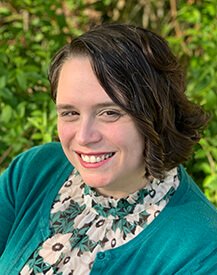Winter Science Activities for Preschoolers
Whether your weather is snowy or sunny, exploring ice and snow is always in season. There are plenty of great winter weather crafts out there for the preschool classroom, so keep reading for unique ways to encourage inquiry learning for your students during the winter months with these fun winter activities.
Winter Activities for Preschoolers:
Books About Winter for Preschoolers:
Nonfiction:
All About Animals in Winter by Martha E. H. Rustad
Goodbye Autumn, Hello Winter by Kenard Pak
All About Winter Weather by Kathryn Clay
No Two Alike by Keith Baker
Over and Under the Snow by Kate Messner
The Story of Snow: The Science of Winter’s Wonder by Mark Cassino
The Secret Life of a Snowflake: An Up-close Look at the Art and Science of Snowflakes by Kenneth Libbrecht
Snowflakes in Photographs by W.A. Bentley
Curious about Snow by Gina Shaw
Snowflake Bentley by Jacqueline B. Martin and Mary Azarian
Fiction:
The Snowy Day by Ezra Jack Keats
Bear Snores On by Karma Wilson
The Hat by Jan Brett
Annie and the Wild Animals by Jan Brett
A Loud Winter’s Nap by Katy Hudson
The Winter Train by Susanna Isern
Brave Irene by William Steig
Tracks in the Snow by Wong Herbert Yee
Lemonade in Winter by Emily Jenkins
The Red Sled by Lita Judge
Cat on the Bus by Aram Kim
The Snowman by Raymond Briggs
The Mitten by Alvin Tresselt
Tacky the Penguin by Helen Lester and Lynn Munsinger
Acorns Everywhere by Kevin Sherry
Leaf Trouble by Jonathan Emmet
Winter Resources:
National Snow and Ice Data Center: Snow and Animals
https://nsidc.org/cryosphere/snow/animals.html
SciJinks: How do snowflakes form?
https://scijinks.gov/snowflakes/
ESP Science Time: Animals in Winter
http://www.espsciencetime.org/AnimalsinWinter.aspx
SciShow Kids: Science of Winter Compilation
https://www.youtube.com/watch?v=jwdkg5eFaHs
Winter Science Webinar Recording
Winter Science Presentation
Download the Seasonal Science Winter Webinar here.
Standards & Alignments
 Hollie is certified K-8 teacher who has been educating in the informal education field since 2005. She has developed and implemented countless exciting STEAM programs for families, classrooms, and teachers focused on the natural world, the scientific process, and ancient life. Her professional passions are inquiry, whole family learning, experiential learning starting in early childhood, and the intersection of literacy and science instruction.
Hollie is certified K-8 teacher who has been educating in the informal education field since 2005. She has developed and implemented countless exciting STEAM programs for families, classrooms, and teachers focused on the natural world, the scientific process, and ancient life. Her professional passions are inquiry, whole family learning, experiential learning starting in early childhood, and the intersection of literacy and science instruction.
She has recently developed a community-based program that encourages families to use dramatic play to learn science, increase literacy skills, and have fun together for which she received the Drexel University Presidential Award for Civic Engagement. She is most proud of her work on a popular science storytelling program for preschool families and classrooms that combines a book club format with engaging programs, innovative curriculum, and a hysterical puppet storyteller.
